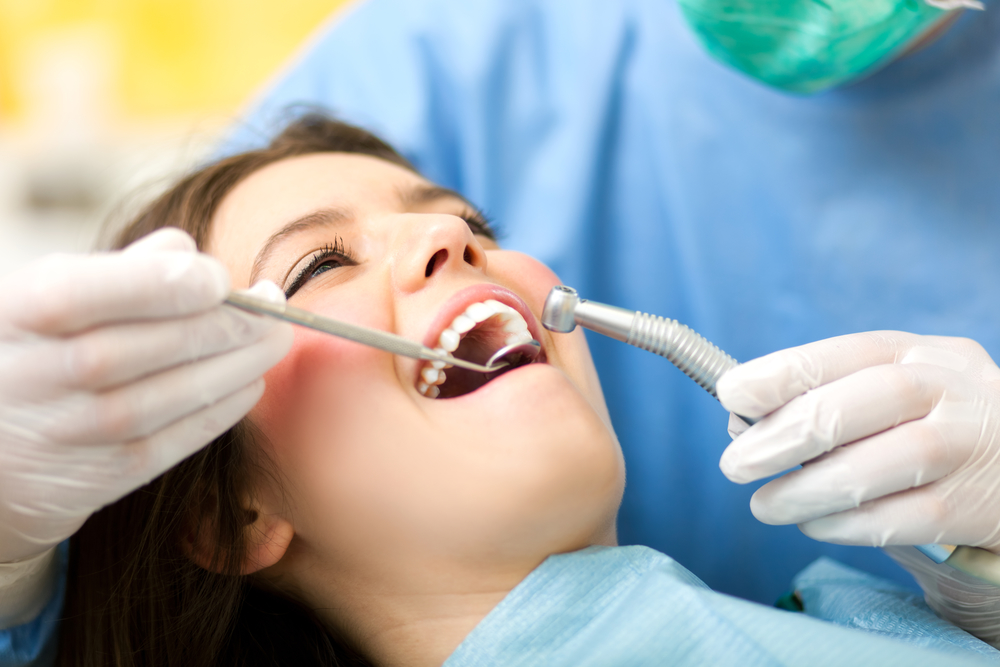Key Takeaways
- Routine dental examinations are essential for upholding oral health and avoiding illnesses.
- Dental benefits can provide significant cost savings on treatments for both preventive and corrective care.
- Different dental plans can help individuals choose options that align with their needs and budgets.
- Maintaining good oral health contributes to overall health, including reducing risks of systemic conditions such as heart disease.
The Relation Between Dental Health and General Well-Being
Oral health is pivotal to our overall wellness, extending beyond superficial aesthetics. Increasing evidence highlights the significant link between oral care and overall health results, particularly affecting heart health and the control of chronic illnesses like diabetes. Regular dental visits transcend merely preserving a gleaming smile; they constitute a proactive strategy indispensable in safeguarding your holistic health framework. Extensive studies illuminate how inflammation arising from periodontal disease may correlate with cardiovascular complications, while diligent oral care might mitigate risks associated with metabolic disorders like diabetes. Gleaning insights from such pivotal research become particularly vital when electing dental plans. Many individuals find that selecting one of the top FEDVIP dental plans offers extensive coverage that meets various healthcare requirements, delivering crucial preventive benefits frequently overlooked yet integral for long-term health sustenance.
Benefits of Regular Dental Check-ups
Regularly scheduled dental examinations are a cornerstone in identifying pre-existing oral health issues before they evolve into protracted complications. These check-ups are instrumental in equipping dentists to diagnose incipient conditions such as cavities, plaque build-up, or initial signs of gum disease. Such preemptive measures exhibit economic savvy and are fundamentally crucial for long-term health, effectively decreasing the need for labor-intensive procedures in the future. Moreover, these routine check-ups proffer substantial economic value beyond the immediate health benefits. Preventive dental oversight has been demonstrated to preempt substantial healthcare costs by circumventing the necessity of invasive treatments. Crucially, the implications of these interventions extend beyond mere financial considerations; they safeguard against minor oral complications escalating into severe health crises, thereby underscoring the often-undervalued necessity of early, proactive intervention and continuous dental care vigilance.
Understanding Different Types of Dental Plans
Maneuvering through the landscape of dental insurance might initially appear daunting, yet comprehending the foundational frameworks of available plans enables individuals to make well-informed decisions. The most prevalent plans encompass Preferred Provider Organizations (PPOs), Health Maintenance Organizations (HMOs), and various discount dental plans. PPOs allow considerable flexibility in selecting dental professionals, albeit with potentially higher premiums. In contrast, HMOs generally restrict dentist choice to network-affiliated professionals but often present more favorable costs for provided services. Meanwhile, discount dental plans, although not technically insurance, offer financial savings on dental services instead of a fee. By familiarizing themselves with these structural distinctions, individuals can harmonize dental care options with individual health needs and financial contexts, ensuring choices reflect health priorities and economic realities.
READ MORE : How to Avoid Common Pitfalls in Car Shipping
Cost-Saving Benefits of Dental Plans
Dental plans are designed meticulously to alleviate significant out-of-pocket expenses for preventive procedures, including routine cleanings, exams, and X-rays. This coverage model is not just fiscally savvy but promotes a proactive approach to healthcare, enhancing overall wellness while maintaining financial equilibrium. By securing consistent access to routine care, individuals effectively diminish the likelihood of unexpected substantial dental issues that could incur overwhelming costs. A comprehensive dental plan operates as a fiscal shield against unforeseen medical expenditures, performing dual roles: enabling and protecting long-term health management. For an expanded exploration into how practical dental benefits mitigate overarching health expenses, consider consulting resources on oral health, providing a broader context for economic impacts and underscoring the profound role of preventive care within a sustainable healthcare trajectory.
Oral Hygiene Tips for Optimal Health
Upholding effective oral hygiene is indispensable, anchored in a commitment to daily habits that form the foundation for lifelong health. Essential yet crucial practices, such as brushing teeth twice daily with fluoride toothpaste and consistent flossing, significantly mitigate risks such as plaque accumulation and gingivitis. Furthermore, nutritional choices play a decisive role in maintaining oral health. Reducing sugary drinks and snacks prevents tooth decay and fosters general well-being. Regularly replace your toothbrush—ideally every three to four months—and use fluoride toothpaste to bolster teeth against cavity-inducing acids. These straightforward practices establish a robust framework for sustained oral health and concurrently serve as preventive mechanisms against systemic conditions intricately tied to inadequate dental hygiene practices.
Impact of Oral Health on Systemic Conditions
The link between oral and general health points to an expanding research focus. Scientists are increasingly discovering links between periodontal disease and systemic issues like heart disease, stroke, and specific cancers. Poor oral health is posited to introduce harmful bacteria into the bloodstream, potentially provoking widespread inflammatory responses. Consequently, understanding dental care’s preventive benefits is paramount to curtailing broader systemic health issues. Regular visits to dental practitioners thus emerge as pivotal strategies for detecting early signs of systemic diseases, affirming preventive approaches as vital in moderating the onset or severity of broader health complications, ultimately underscoring the indispensable value of sustained oral health monitoring and maintenance.
Conclusion: The Invisible Role of Dental Care in Overall Health
Dental health transcends superficial concerns, proving a vital bulwark against potential systemic diseases and health complications. Effective oral care represents preventive healthcare, integral to supporting overarching wellness initiatives. Recognizing these interconnected facets is crucial when evaluating dental plan investments. Informed decisions surrounding dental benefits, dedication to preventive care practices, and consistent check-ups catalyze improved health outcomes while facilitating significant long-term financial savings. A comprehensive understanding of the varied dental plan complexities and a steadfast commitment to diligent oral hygiene offers a sustainable roadmap for preserving one’s health across decades, underscoring proactive maintenance as a cornerstone of holistic well-being strategies.

